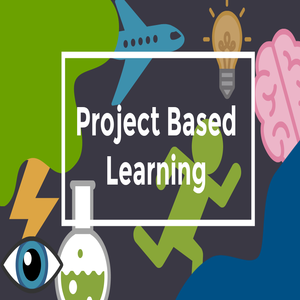Benefits of Project-Based Learning
 Playing an important role in building the career and future of the upcoming generation education sector is always prone to improvement. Adapting different methodologies to enhance the learning ability of the students, traditional teaching technique has been through a lot to be at the current stage. Still under continuous evaluation, classroom teaching is constantly challenged by the educationists and policymakers to ensure the provision of quality education. One of the recent trends, project-based learning is gaining popularity by propelling the students to gain knowledge proficiently. According to recent surveys, students tend to learn effectively and at a faster pace through project-based learning as it enhances their critical thinking and problem-solving skills. Often referred as active learning, project-based learning incorporates tasks and situations through which students navigate by themselves. Implementing the theoretical knowledge in real-time scenario students produce results that benefits them further in the real world. Instead of swallowing the bookish knowledge, the students get a chance to learn through experience which is more effective and beneficial for the long run.
Playing an important role in building the career and future of the upcoming generation education sector is always prone to improvement. Adapting different methodologies to enhance the learning ability of the students, traditional teaching technique has been through a lot to be at the current stage. Still under continuous evaluation, classroom teaching is constantly challenged by the educationists and policymakers to ensure the provision of quality education. One of the recent trends, project-based learning is gaining popularity by propelling the students to gain knowledge proficiently. According to recent surveys, students tend to learn effectively and at a faster pace through project-based learning as it enhances their critical thinking and problem-solving skills. Often referred as active learning, project-based learning incorporates tasks and situations through which students navigate by themselves. Implementing the theoretical knowledge in real-time scenario students produce results that benefits them further in the real world. Instead of swallowing the bookish knowledge, the students get a chance to learn through experience which is more effective and beneficial for the long run.
To understand the advantages of Project-Based Learning, the below-mentioned points might assist the readers:
- Improves Interpersonal Skills: Enabling the students to face and tackle real-world problems, project-based learning enhances the personality of a student from a young age. Apart from critical thinking, problem-solving, and communication skills, the assignments allotted in project-based learning teaches students to face the problem from their point of view and solve accordingly.
- Enhances Creativity: Let it be a group project or individual one, every project-based assignment needs some researches to be done. Analyzing the complexity of the problem and approaching results on their own terms, boosts the creativity among the students.
- Encourages Facing Real-World Problems: The theoretical knowledge acquired from a traditional classroom teaching only helps the students to learn some facts and figures. This may be effective for academic results but certainly does not help students in the long run. When the time comes to implement this theoretical knowledge into a practical model, the student might fail due to a lack of in-hand experiences. So, apart from the bookish knowledge, project-based learning is equally necessary in preparing the students to face real-time problems.
- Demonstrates Capability: Through each individual project, not only the teacher but the students also learn about their individual performances. They identify the fields they need to focus on and start working accordingly. This technique works as a self-motivation which is yet another important aspect for the young generation.
- Builds Confidence: As discussed earlier, by demonstrating the capability of the students, project-based learning builds confidence among the students which encourages them to work harder to achieve more proficient results. Often burdened with loads of study related pressures, students can gain self-recognition and understand self-worth which will inspire them to study harder.
- Teaches Team-Work: While working in a group, students learn to work with other students and learn about the importance of team building. An important aspect to learn in the future, working in a team will teach the students to share the work and progress towards the common goal consistently.
By taking initiatives to discover new things, the young minds find project-based learning much more interesting and advantageous. Learning through projects encourages the students to walk that extra mile creating a passion in them to learn in detail about the topic which is much better than bookish knowledge. A new-age technique to prepare the students future-ready, project-based learning should be implemented in traditional classroom teaching practices.

